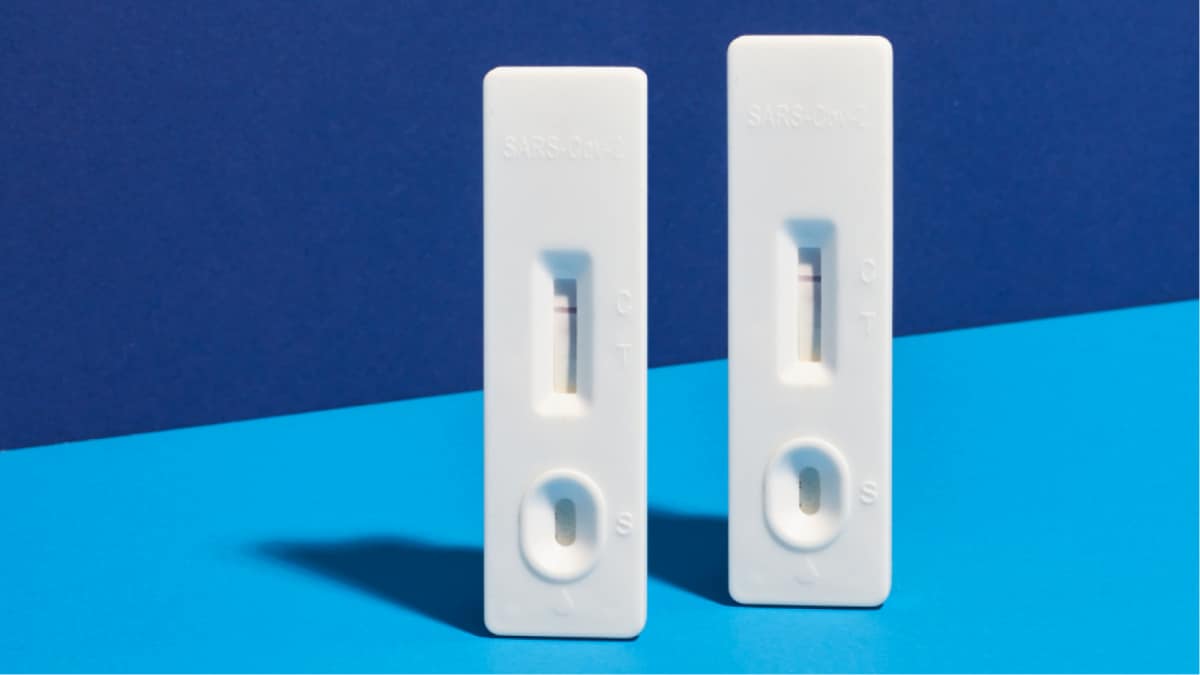
Even with Australia’s high vaccination rate, COVID-19 cases are increasing rapidly in the community. The latest Omicron variant of concern appears to be far more contagious than the Delta variant, but so far, the Delta variant is more likely to cause hospitalisation.

Even with Australia’s high vaccination rate, COVID-19 cases are increasing rapidly in the community. The latest Omicron variant of concern appears to be far more contagious than the Delta variant, but so far, the Delta variant is more likely to cause hospitalisation.
Both Delta and Omicron variants are highly transmissible and can cause serious illness. Regardless of the variant, symptoms can range from mild to severe. Some people recover quite easily, while others become extremely ill very quickly.
Is it Delta or Omicron?
While there has been some reporting of different symptoms between the variants there is no way for you to know which one you have based on symptoms alone.
The only way to definitively test for which variant of COVID-19 you have is to perform genome sequencing. This type of test is only undertaken if a doctor thinks there is a clinical reason to do so. Chances are unless you are very sick and receiving treatment in a hospital you will not know which variant you have.
If you have a mild case of COVID-19 that can be managed at home, then the same advice for managing symptoms will apply no matter the variant.
· Bed rest
· Regular paracetamol and ibuprofen to relieve pain and fevers,
· Throat lozenges for a sore throat,
· Keeping hydrated with regular sips of water.
Read the full advice for managing COVID-19 at the NSW Health website here
What are the Symptoms?
Both variants share similar symptoms, but there appear to be some subtle differences.
If you test positive for COVID-19 you’re likely to experience fever, coughing, sore throat and shortness of breath. It’s been reported Omicron patients have a more dry cough and scratchy sore throat.
Other COVID-19 symptoms include:
There is some evidence that Omicron is more likely cause symptoms in children, especially fever, sore throat, cough, vomiting and diarrhoea. While infection is generally mild in children, a greater number of children under 5 years have been admitted to hospital with the Omicron variant compared to previously.
COVID-19 is infectious even before any of these symptoms begin to show. While most people who contract COVID-19 make a full recovery, some develop long COVID – the symptoms remain or develop long after the initial infection. It is unclear with both the Delta and Omicron variants how often this may occur. Long COVID symptoms include extreme fatigue, problems with memory or concentration, shortness of breath, heart palpitations, chest pain, changes to taste and smell and joint and muscle pain.
How do I know I have COVID-19?
If you have any of the above symptoms, you should take a test, either a rapid antigen test (RAT) or a polymerase chain reaction (PCR) test to confirm whether you have COVID-19. You should also take a test if you live with someone with COVID-19 or have spent significant time or interacted closely with someone who has COVID-19.
In NSW, if you get a positive result you need to self-isolate at home for seven days from the date you got tested, even if you are fully vaccinated. You must tell your household contacts, who should also self-isolate for 7 days.
Because you may have been contagious before you developed symptoms or produced a positive test, you must also tell your social contacts and your workplace or school.
You can only leave self-isolation after seven days if you do not have a sore throat, runny nose, cough or shortness of breath in the last 24 hours of your isolation. If you do have any of these symptoms, you must remain in self-isolation until 24 hours after these symptoms are gone. Call your GP if you have any concerns.
Full instructions for what to do if you test positive in NSW can be found here. https://www.health.nsw.gov.au/Infectious/factsheets/Pages/advice-for-confirmed.aspx
Protecting yourself against COVID-19
The vaccines currently available in Australia are proven effective in preventing severe illness, hospitalisation or death from Delta and Omicron. If you haven’t done so already, you should get vaccinated as soon as possible. Getting vaxxed not only protects you, it also protects your family, friends and the wider community by helping reduce the spread of the virus.
Because immunity wanes over time, all vaccines require a booster vaccination dose after your first two doses of COVID-19 vaccine. Regardless of which vaccine you first had, Pfizer and Moderna mRNA vaccines are recommended as boosters in Australia to strengthen your immune system and increase your long-term protection.
Children from 5–11 are now also recommended to be vaccinated against COVID-19. Full details for eligibility and booking the COVID-19 vaccine in NSW is available here.
Other references:
HMRI would like to acknowledge the Traditional Custodians of the land on which we work and live, the Awabakal and Worimi peoples, and pay our respects to Elders past and present. We recognise and respect their cultural heritage and beliefs and their continued connection to their land.

Hunter Medical Research Institute
We’re taking healthy further.
Locked Bag 1000
New Lambton
NSW, Australia, 2305



This site is protected by reCAPTCHA and the Google Privacy Policy and Terms of Service apply.
Copyright © 2024 Hunter Medical Research Institute | ABN: 27 081 436 919
Site by Marlin Communications
